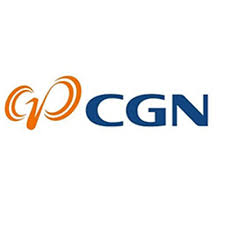Part 3 of 4 Parts (Please read Parts 1 and 2 first)
Although many analysts believe that nuclear energy is critical to freeing Europe from Russian natural gas, it could still leave these states vulnerable to Russian influence. Even if states cancel nuclear projects with Russia, China will soon pass France to become the second-largest producer of nuclear energy. China has its own ambitions for dominating the global energy export market.
Some energy analysts believe that almost all green energy sources represent ethical dilemmas. The Democratic Republic of Congo currently mines sixty percent of the world’s cobalt. This mineral is critical for the electric vehicle market. However, the country’s cobalt producers have faced scrutiny and criticism from international organizations over their human rights, practices, including their use of child labor. In 2021, the Biden administration blacklisted several Chinese solar companies because they were accused of using forced labor and other abuses. Russia is a significant producer of nickel which is a critical material for the production of electric car batteries. There are concerns about future sanctions on nickel or other disruptions to its supply. The current price of nickel is at an eleven-year high.
In order to free itself from dependence on Russian energy, the world will need to be more proactive in ensuring that its energy supply chains are sustainable and ethical. But that should not be taken as a call to return to energy isolationism. Modern energy production systems are complex and interconnected. This is especially true for those who depend on critical minerals that are not evenly distributed across the world. They indicate that true energy independence where nations create power entirely by themselves is just no longer practical. Instead, democratic nations should focus on strengthening their energy interdependence with trusted partners.
To some extent, this process is underway with respect to nuclear energy. Romania canceled a contract with a Chinese owned company in 2020 for two new nuclear reactors because it preferred to move forward with a NATO ally. Russia and China had been competing for a nuclear tender in the Czech Republic, but the government ultimately excluded them from a formal document-sharing process and explicitly said that both countries were “not invited” to bid. Chinese companies are significant investors in two nuclear power projects in the U.K. However, in September of 2021, the U.K. government announced that it was attempting to force a sale of China General Nuclear Power Group’s share in one of its projects. In 2019, a U.S. nuclear company announced that it had canceled a project to build an experimental nuclear reactor in China after U.S. President Trump imposed further trade restrictions.
The West’s domestic nuclear industries have stalled in recent years. Now, the U.S. and European nuclear companies are struggling to find proper alternative to Russian and Chinese state-owned vendors. To catch up, many energy analysts believe that Western governments must construct an old-fashion industrial policy based on investing in domestic manufacturing capabilities all along the nuclear supply chain. They will need to successfully demonstrate new nuclear technologies that they can they export to the international market. Western counties should increase their funding for nuclear export projects through their own export-import banks and development financing. Large investment and development banks will need to change their policies on supporting nuclear energy.
Please read Part 4 next
Nuclear Reactors 1035 – Democratic Nations Need To Disentangle Their Energy Markets From Russia and China – Part 3 of 4 Parts

Written by
in
